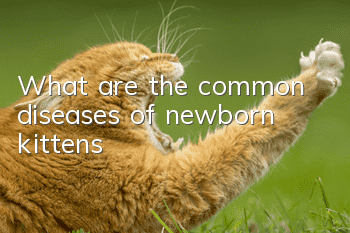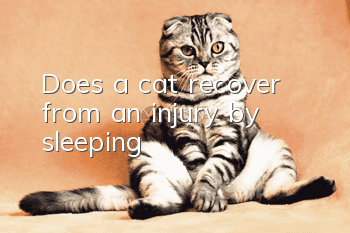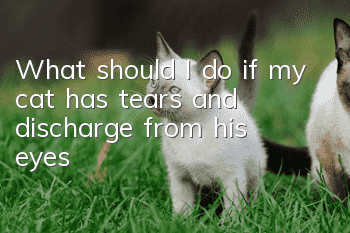What are the common diseases of newborn kittens?

Common diseases in newborn kittens are: hypoglycemia, dehydration, and hypothermia. These diseases can cause death in kittens. Common signs that kittens are sick are: they keep meowing, they don’t grow up, they become less and less energetic, and they become softer and softer. Kittens seldom meow. If they meow often, it means they are not feeling well: they are too cold, hungry, sick, etc.
What are the common diseases of newborn kittens
1. Dehydration
Insufficient water intake, diarrhea, too high ambient temperature or too dry environment may cause the kitten to become dehydrated. If this happens, it must be detected and treated early. Kittens can easily become seriously ill and die from dehydration.
You can use these two methods to diagnose whether your kitten is dehydrated:
1. Pick up the skin on the back of the kitten’s neck, pinch and release it. If the skin returns to its original shape quickly, there is no problem. If the skin slowly returns to its original position or maintains the shape you pinched, it means it is dehydrated. .
2. Touch the cat’s mouth. If it is moist, there is no problem. However, if the mouth feels sticky or dry, it means it is dehydrated.
2. Hypothermia
Hypothermia kills many kittens. Kittens need external heat sources to maintain normal body temperature. The normal body temperature measured from the anus is:
The first week: 35°~37.2℃
The second/third week: 36.1°~37.7℃
By the fourth week, the body temperature of a normal adult cat is: 37.7°~38.9°C
If the body temperature drops below 34.4°C, the metabolism drops to a dangerous level, and measures need to be taken immediately to warm the kitten. Healthy kittens can usually be saved if they are warmed slowly. Warming too quickly can kill the kitten. The best way is to warm yourself with human body temperature.
In the first four days of newborn kittens, the ambient temperature should be maintained at 29.4°~32.2°C. Later, it can be slowly reduced to 26.7°C on the 7th to 10th day, and to 22.2°C by the end of the fourth week. .If there are several kittens in a litter, the temperature does not need to be so high because they will huddle together to keep themselves warm.
3. Hypoglycemia
The symptoms include weakness, convulsions, and coma. If so, feed the kitten glucose. A little syrup (or honey) on your tongue might bring it back to life.
4. Constipation
Cats fed with cat milk powder are more prone to constipation, so there areSometimes you need to feed them some plain water, or dissolve a little bit of hair removal ointment in warm water and feed it to the kitten, which can soften the stool. If you don't have a bowel movement for a long time, the walls of the large intestine will become over-expanded, and even if you finally have a bowel movement, the large intestine still won't work properly.
5. Diarrhea
Kittens may die from diarrhea. If your stool smells bad, is watery, contains blood, or is accompanied by vomiting, you should see a doctor promptly. Kittens can become dehydrated quickly. Hydration should be replenished by subcutaneous injection and water containing electrolyte nutrients should be fed. Diarrhea may also need to be treated with anti-inflammatory drugs.
- What are the causes of cat hair loss?
- What causes kidney failure in kittens?
- What are the precautions for raising a cat? Ten must-read tips
- What causes cat-to-belly transmission?
- Why is the cat scratching its ears?
- Why do cats like to bring things to their owners?
- Can cats remember someone? How long will it be remembered?
- Himalayan cat food taboos
- How to raise Garfield cat
- How many months does it take for a Maine Coon cat to start losing hair?



